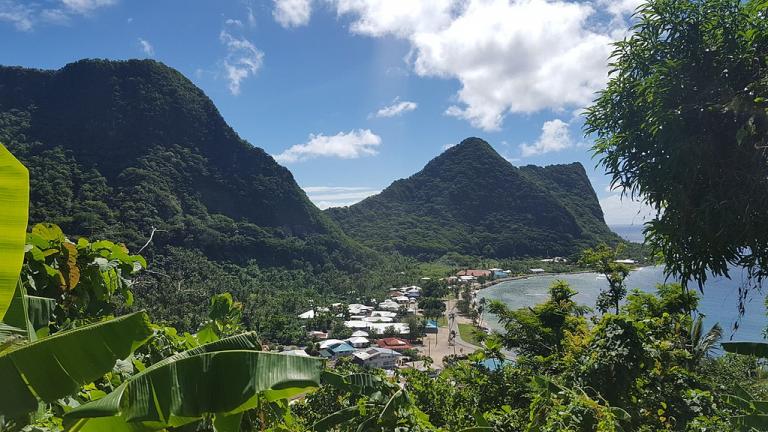American Samoa is a tropical paradise. The group of islands, located between Hawaii and New Zealand, is unspoiled and seldom visited by tourists–except for an occasional cruise ship–and Samoans have largely kept their traditional Polynesian culture. American Samoa, unlike the independent western island group known just as “Samoa,” is a U.S. territory. A recent court ruling would give Samoans full American citizenship, which has some island residents worried.
American Samoa, which became a U.S. territory in 1900 (click the link for details about how that happened), has a complicated legal relationship with the mainland. The islands pretty much govern themselves with minimal interference. They love America and being part of America. The islanders have the highest percentage of enlistees in the U.S. military of any other state or territory.
But residents are classified as “U.S. nationals,” not full-fledged American citizens. A federal judge in Utah, though, recently ruled that American Samoans were entitled to full birthright citizenship. That was good news for the 150,000 Samoan nationals living in the United States. Back home on the islands, though, many of the 55,000 residents are concerned about what full American citizenship might mean for their way of life.
They fear that along with American citizenship will come American law. There are basically two issues they are worried about: What that law might do to their economic culture. And what the American insistence on the separation of church and state might do to the way they practice their Christian faith.
American Samoans practice communal ownership. Land is owned and passed down by families. Both nuclear and extended families–headed by a chief–play a big role in Samoan society. Their system is similar to that of the Israelite tribes described in the Old Testament. Also, you have to be 50% Samoan in order to own any land at all.
Wealthy Americans cannot buy vacation homes on the pristine beaches. American or other foreign developers cannot buy up prime locations by the ocean to build gigantic hotels and casinos, as they have on other “tropical paradises.” And the Samoans like it that way.
Would this be allowed under American law? Surely not.
And though the Polynesians of old had the reputation of sexual promiscuity and cannibalism, the Polynesian islands today may be some of the most Christian places on earth. American Samoans claim that their population is “100% Christian,” and they take it very seriously.
One of their religious practices is the “prayer curfew.” Every day at 6:00 p.m., the police ring a bell, whereupon everyone must leave the streets, beaches, and workplaces to go home for family prayer.
Would this be allowed under American law? Surely not. As the Samoan government pointed out in a brief opposing the Utah court ruling on citizenship, imposing “blanket adult curfews to United States citizens could be unconstitutional under existing case law.”
Are American citizens necessarily under U.S. laws? What about American expatriates, who are subject to the laws of their place of residence, though they have U.S. passports (and often must pay U.S. taxes)? Might it be possible for a U.S. territory to keep its local laws and customs, even if its residents are American citizens (as those of all other U.S. territories are)?
Or are American Samoans right to be worried that they would lose their family property holdings and their prayer curfews? Might the prayer curfews continue under the separation of church and state as a voluntary exercise? Wouldn’t it be more appropriate anyway to have someone other than a police officer ring the 6:00 p.m. bell? Or is that sentiment just American individualism talking, missing completely the significance of an entire society being part of a Christian community?
Finally, wouldn’t you like to live in a place like American Samoa?
Photo: Vatia from the National Park of American Samoa by Eddy23 [CC BY-SA (https://creativecommons.org/licenses/by-sa/4.0)] via Wikimedia Commons













